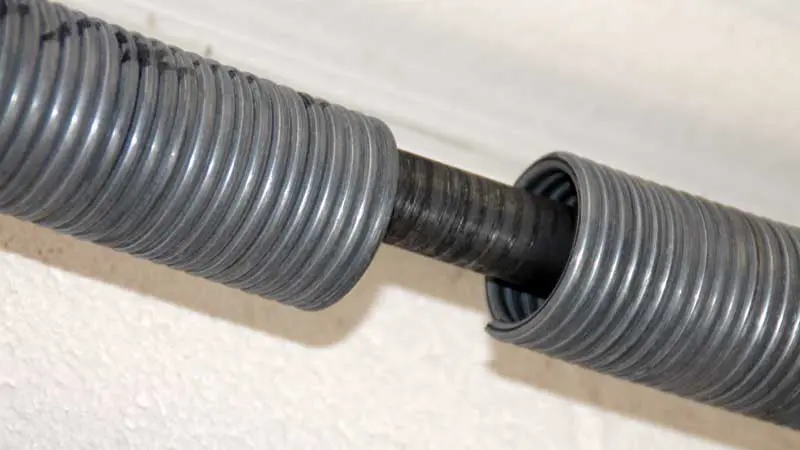Garage door springs are unsung heroes in our daily routines, ensuring smooth door operation. But just how often do garage door springs break, and what factors contribute to their lifespan? In this insightful guide, we’ll delve into the frequency of garage door spring failures and provide essential information for homeowners to understand and manage this common occurrence.

Introduction
As an integral component of your garage door system, springs play a crucial role in its functionality. The question on many homeowners’ minds is, “How often do garage door springs break?” Let’s unravel the mysteries surrounding garage door spring longevity and explore proactive measures to extend their lifespan.
Unveiling the Frequency: How Often Do Garage Door Springs Break?
Understanding the frequency of garage door spring breakages involves considering various factors that contribute to wear and tear.
1. Standard Lifespan of Garage Door Springs
Garage door springs are not designed to last indefinitely. The typical lifespan of garage door springs is measured in cycles, with one cycle being the process of opening and closing the door once. Standard torsion springs usually have a lifespan of around 10,000 cycles, while extension springs may last for approximately 15,000 cycles.
Factors Influencing Lifespan:
- Frequency of Use: The more frequently the garage door is used, the quicker the springs will reach their maximum cycle limit.
- Quality of Springs: High-quality springs tend to last longer. Investing in durable materials can contribute to an extended lifespan.
2. Signs of Wear and Tear
Recognizing the signs of wear and tear is crucial for homeowners to address potential issues before a complete failure occurs. Signs include:
- Visible Rust: Rust can weaken the springs over time, making them more prone to breakage.
- Squeaking Noises: Unusual sounds during door operation may indicate friction and increased stress on the springs.
- Gaps or Gaps in the Springs: Any visible gaps or spaces in the springs may be a sign of deformation or damage.
Factors Contributing to Garage Door Spring Breakage
- Frequency of Use: The more frequently you use your garage door, the quicker the springs will reach their maximum cycle limit. Regular maintenance becomes crucial for heavily used doors.
- Lack of Maintenance: Neglecting regular maintenance, including lubrication and inspection, can accelerate wear and tear on garage door springs.
- Quality of Springs: Investing in high-quality springs can significantly impact their lifespan. Cheaper, lower-quality springs may have a shorter lifespan and break more frequently.
Read too: Why Your Chamberlain Garage Door Opener Learn Button Is Not Working and How to Fix It? Troubleshooting Guide
Proactive Measures for Prolonging Garage Door Spring Lifespan
While garage door springs have a finite lifespan, homeowners can take proactive measures to maximize their longevity and minimize unexpected breakages.
- Regular Inspection: Schedule routine inspections to check for signs of wear and tear. Addressing issues early can prevent complete spring failure.
- Lubrication: Regularly lubricate the springs and other moving parts of the garage door to reduce friction and minimize stress on the components.
- Professional Maintenance: Engage the services of a professional garage door technician for regular maintenance checks and adjustments. Professionals can identify potential issues before they escalate.
Conclusion: A Balanced Approach to Garage Door Spring Maintenance
In conclusion, understanding how often garage door springs break involves considering various factors such as lifespan, signs of wear and tear, and proactive maintenance measures. While breakages are common due to the inherent nature of springs, homeowners can play a crucial role in extending their lifespan through regular care and attention.
By incorporating routine inspections, lubrication, and professional maintenance into your garage door care routine, you can strike a balance that ensures reliable and efficient operation while minimizing the frequency of garage door spring breakages.



Leave a Reply